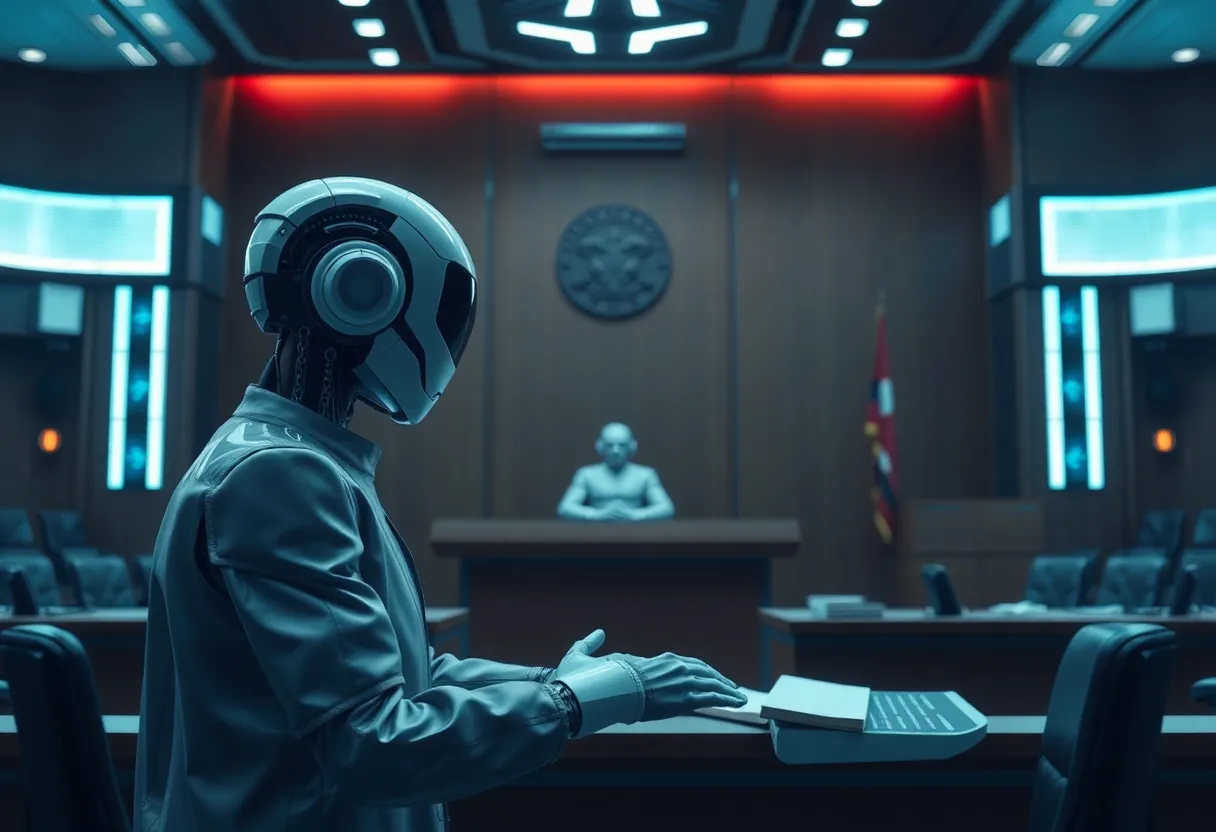News Summary
In a historic court appearance, an AI-generated likeness of Chris Pelkey, a veteran killed in a 2021 road rage incident, addressed the sentencing of his attacker. The AI was created by Pelkey’s sister and conveyed a message of forgiveness, raising ethical questions about the use of AI in legal proceedings. Pelkey’s family found solace in the AI portrayal, while concerns were raised about its implications for judicial integrity.
Arizona – In a groundbreaking court appearance, an AI-generated likeness of Chris Pelkey, a 37-year-old U.S. Army combat veteran killed in a 2021 road rage incident, addressed the court during the sentencing of Gabriel Paul Horcasitas. The incident occurred in Chandler, Arizona, when Pelkey was shot by Horcasitas after he exited his vehicle to approach Horcasitas’s car at a red light. The confrontation escalated when Horcasitas also shot at a nearby vehicle with a woman and two children inside, but they were not harmed.
Three and a half years after his death, Pelkey’s AI representation expressed sentiments of forgiveness toward Horcasitas. The AI model was created by Pelkey’s sister, Stacey Wales, who input over 40 videos and voice recordings to ensure the accuracy of the digital representation. In the AI-generated video, Pelkey conveyed his beliefs in forgiveness and a hopeful connection, stating, “In another life, we probably could have been friends.”
The presiding judge, Todd Lang, noted the authenticity of the AI-assisted statement and acknowledged that he felt the message of forgiveness conveyed by Pelkey. Horcasitas was subsequently sentenced to 10.5 years in prison for manslaughter, which was slightly above the state’s recommendation of 9.5 years.
Pelkey’s family has expressed that the AI representation provided them with a sense of healing. They believe that Chris would have genuinely forgiven Horcasitas, with his brother John indicating that this technological approach helped depict Pelkey’s true character, countering previous court visuals that included graphic autopsy images and footage of his death.
Ethical Considerations and Legal Implications
The use of AI technology to deliver victim impact statements has sparked significant ethical discussions regarding the legality and morality of replicating deceased individuals for courtroom testimony. Some experts caution that utilizing AI representations may distort emotional narratives presented in court, potentially impacting judicial outcomes. Horcasitas’s legal representation expressed concerns that the AI-generated likeness could affect future appeal processes.
A Historical Milestone in Courtroom Technology
This case marks a pioneering use of AI technology for victim impact statements in the United States. Following the court proceedings, discussions have begun among the U.S. judicial conference advisory committee concerning the regulation of AI-generated evidence. The phenomenon has been met with mixed public reception, with discourse on whether such representations are in line with ethical standards and judicial integrity.
Responses from the Family and Legal Counsel
Wales referred to the AI rendering as a “Frankenstein of love,” emphasizing that it helped to humanize her brother in a way that previous trial visuals did not. Conversely, Horcasitas’s attorney criticized the use of AI representation, raising concerns about potential ethical breaches in court procedures. Despite the criticism, Pelkey’s family found healing through the AI portrayal, which served to reinforce his enduring spirit and characteristic compassion.
As technology continues to evolve, the judicial system faces both challenges and opportunities in integrating new methods such as AI into legal proceedings. The implications of this case extend beyond the courtroom, prompting critical reflection on the intersection of technology, ethics, and the delivery of justice.
Deeper Dive: News & Info About This Topic
- The Guardian
- Wikipedia: Artificial Intelligence
- USA Today
- Google Search: Chris Pelkey ai court
- The New York Times
- Encyclopedia Britannica: Law
- BBC News
- Google News: road rage victim AI statement
- NBC News
- Google Scholar: AI victim impact statements
- CNN
- Encyclopedia Britannica: Technology
- ABC News
- Google Search: AI generated victim statements
- Reuters
- BBC News Technology

Author: STAFF HERE PHOENIX WRITER
The PHOENIX STAFF WRITER represents the experienced team at HEREPhoenix.com, your go-to source for actionable local news and information in Phoenix, Maricopa County, and beyond. Specializing in "news you can use," we cover essential topics like product reviews for personal and business needs, local business directories, politics, real estate trends, neighborhood insights, and state news affecting the area—with deep expertise drawn from years of dedicated reporting and strong community input, including local press releases and business updates. We deliver top reporting on high-value events such as the Waste Management Phoenix Open, Cactus League Spring Training, and Arizona State Fair. Our coverage extends to key organizations like the Greater Phoenix Chamber of Commerce and Visit Phoenix, plus leading businesses in technology and healthcare that power the local economy such as Intel and Banner Health. As part of the broader HERE network, including HERETucson.com, we provide comprehensive, credible insights into Arizona's dynamic landscape.





